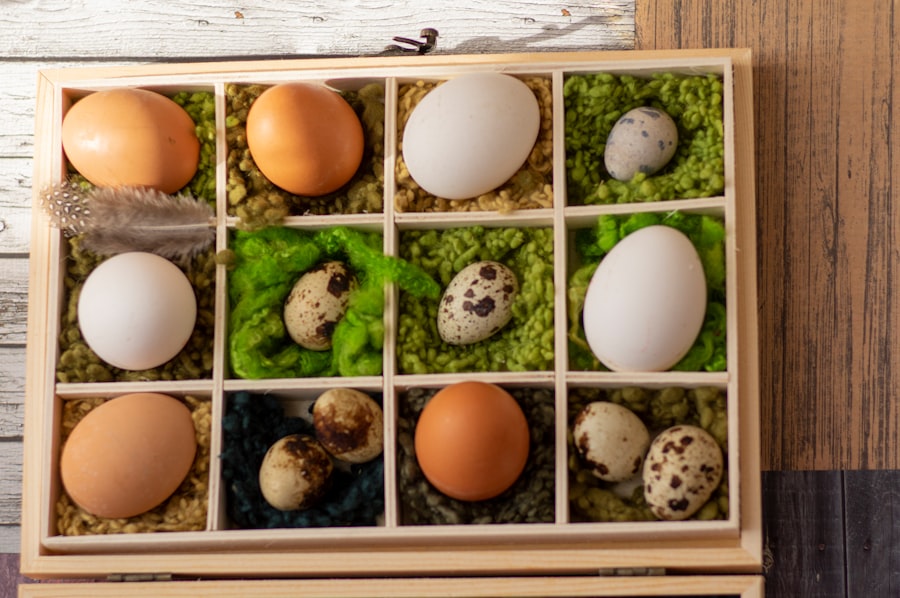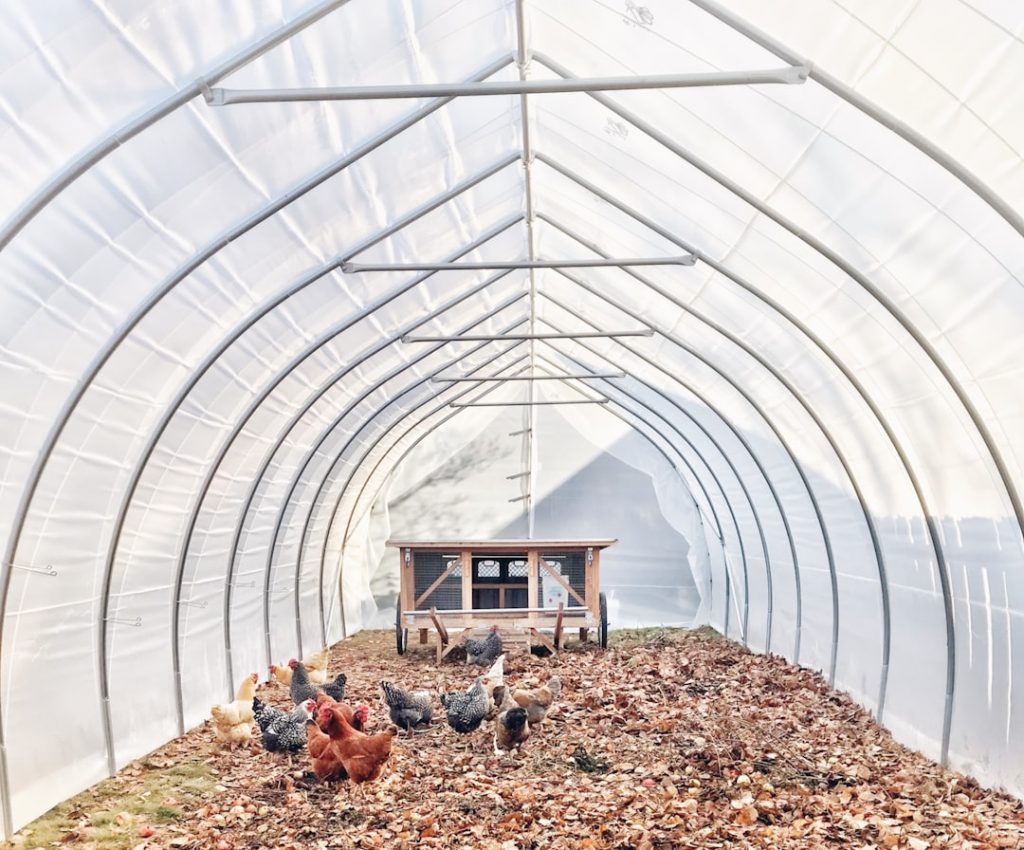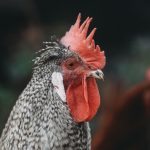When selecting breeds for a poultry farm, several factors must be considered. The primary consideration is the farm’s purpose: meat production, egg production, or both. For egg production, breeds like Rhode Island Red, Leghorn, Sussex, and Australorp are known for their high laying capabilities.
For meat production, breeds such as Cornish Cross, Plymouth Rock, and Jersey Giant are often preferred. Climate and environment play crucial roles in breed selection. Some breeds are better adapted to cold weather, while others thrive in warmer climates.
Disease resistance is another important factor, as it affects the overall health and success of the flock. The temperament of different breeds should also be taken into account. Some breeds are more docile and easy to handle, while others can be more aggressive or flighty.
This characteristic can impact the ease of management and overall farm operations. Ultimately, the ideal breeds for a poultry farm depend on specific goals, farm location, and environmental conditions. Careful consideration of these factors will help ensure the success and productivity of the poultry operation.
Table of Contents
Key Takeaways
- Select breeds that are well-suited to your climate and intended purpose, such as egg production or meat quality.
- Create a comfortable and secure environment with proper ventilation, lighting, and space for the birds to roam.
- Provide a balanced diet with the right mix of protein, carbohydrates, vitamins, and minerals for optimal growth and health.
- Establish a breeding program that focuses on selecting the best traits and genetics for your desired outcomes.
- Monitor the health and wellness of your birds regularly, and seek veterinary care as needed to prevent and treat illnesses.
- Manage brooding and hatching carefully, ensuring the right temperature, humidity, and handling to promote successful hatching.
- Ensure proper care for chicks by providing warmth, nutrition, and protection from predators and disease.
Creating the Ideal Environment
Providing Adequate Housing
The housing should protect the chickens from predators and the elements while also providing enough space for them to move around comfortably.
Essential Elements for a Healthy Environment
Proper ventilation is essential to prevent respiratory issues and maintain air quality within the coop. It’s also important to provide appropriate lighting to mimic natural daylight cycles and encourage healthy growth and egg production. Additionally, ensuring access to clean water and nutritious feed is vital for the overall health and productivity of your flock.
Maintaining a Clean and Healthy Environment
Chickens require a constant supply of fresh water to stay hydrated and maintain their overall health. Similarly, providing a balanced diet that meets their nutritional needs is essential for their growth and productivity. Keeping the environment clean and free of waste is important to prevent the spread of disease and maintain a healthy living space for your flock.
Providing Proper Nutrition

Providing proper nutrition is essential for the health and productivity of your poultry farm. Chickens require a balanced diet that includes a mix of protein, carbohydrates, fats, vitamins, and minerals to support their growth and overall well-being. A high-quality commercial feed that is specifically formulated for poultry is a good starting point for meeting their nutritional needs.
Additionally, supplementing their diet with fresh fruits and vegetables can provide added nutrients and variety. It’s important to ensure that chickens have access to clean water at all times to stay hydrated and aid in digestion. Additionally, providing access to grit or small stones can help chickens grind their food in their gizzards, aiding in digestion.
It’s also important to monitor their food intake and adjust their diet as needed based on their growth stage and production levels. In addition to providing a balanced diet, it’s important to consider any specific nutritional needs based on the purpose of your farm. For example, if you’re raising chickens for egg production, you may need to adjust their diet to support optimal egg-laying capabilities.
Similarly, if you’re raising chickens for meat production, you may need to adjust their diet to support healthy growth and muscle development. Providing proper nutrition is essential for the health and productivity of your poultry farm. Chickens require a balanced diet that includes a mix of protein, carbohydrates, fats, vitamins, and minerals to support their growth and overall well-being.
A high-quality commercial feed that is specifically formulated for poultry is a good starting point for meeting their nutritional needs. Additionally, supplementing their diet with fresh fruits and vegetables can provide added nutrients and variety. It’s important to ensure that chickens have access to clean water at all times to stay hydrated and aid in digestion.
Additionally, providing access to grit or small stones can help chickens grind their food in their gizzards, aiding in digestion.
Establishing a Breeding Program
Establishing a breeding program is an important aspect of managing a successful poultry farm. When establishing a breeding program, it’s important to select breeding stock that exhibits desirable traits such as good health, productivity, and temperament. It’s also important to consider genetic diversity to prevent inbreeding and maintain a healthy gene pool within your flock.
Once you have selected breeding stock, it’s important to establish a breeding schedule that takes into account factors such as age, health, and production levels. Monitoring breeding pairs and keeping detailed records can help track lineage and identify any potential issues that may arise. Additionally, it’s important to have a plan in place for managing hatching eggs and raising chicks once they hatch.
Providing a suitable environment for brooding and ensuring proper care for chicks is essential for their health and development. Establishing a breeding program is an important aspect of managing a successful poultry farm. When establishing a breeding program, it’s important to select breeding stock that exhibits desirable traits such as good health, productivity, and temperament.
It’s also important to consider genetic diversity to prevent inbreeding and maintain a healthy gene pool within your flock. Once you have selected breeding stock, it’s important to establish a breeding schedule that takes into account factors such as age, health, and production levels.
Monitoring Health and Wellness
Monitoring the health and wellness of your flock is crucial for preventing disease outbreaks and maintaining overall productivity. Regular health checks can help identify any potential issues early on and prevent them from spreading throughout the flock. It’s important to be familiar with common poultry diseases and their symptoms so that you can quickly identify any signs of illness in your flock.
Additionally, practicing good biosecurity measures can help prevent the introduction and spread of diseases within your farm. In addition to monitoring physical health, it’s also important to consider the mental well-being of your chickens. Providing enrichment activities such as perches, dust baths, and access to outdoor areas can help reduce stress and promote overall well-being.
Monitoring the health and wellness of your flock is crucial for preventing disease outbreaks and maintaining overall productivity. Regular health checks can help identify any potential issues early on and prevent them from spreading throughout the flock. It’s important to be familiar with common poultry diseases and their symptoms so that you can quickly identify any signs of illness in your flock.
Managing Brooding and Hatching

Creating an Optimal Brooding Environment
Providing a suitable environment for brooding is crucial for the health and development of chicks. This includes providing a warm and draft-free space with access to food and water.
Monitoring and Supporting Brooding Hens
It’s also important to monitor brooding hens closely during this time to ensure they are properly caring for their chicks. Providing supplemental heat if needed can help maintain optimal conditions for young chicks.
Managing Hatching Eggs
Managing hatching eggs requires careful attention to factors such as temperature, humidity, and turning frequency. Properly managing these factors can help ensure a successful hatch rate.
Key Takeaways
Managing brooding and hatching is an essential aspect of maintaining a successful poultry farm. By providing a suitable environment for brooding and carefully managing hatching eggs, poultry farmers can help ensure the health and development of their chicks.
Ensuring Proper Care for Chicks
Ensuring proper care for chicks is essential for their health and development. Providing a warm and draft-free brooding area with access to food and water is crucial during the early stages of life. It’s also important to monitor chicks closely for any signs of illness or distress and provide appropriate care as needed.
Additionally, providing enrichment activities such as perches and access to outdoor areas can help promote healthy growth and development. Ensuring proper care for chicks is essential for their health and development. Providing a warm and draft-free brooding area with access to food and water is crucial during the early stages of life.
If you’re looking for the best setup for breeding chickens, you may want to consider the design and location of your chicken coop. A well-designed coop can make a big difference in the health and productivity of your flock. For example, this article on chicken coop design in Portage offers insights into creating a comfortable and functional space for your chickens. Additionally, the article on farmhouse chicken coop provides tips on creating a cozy and safe environment for breeding chickens. These resources can help you make informed decisions about the best setup for your breeding operation.
FAQs
What is the best setup for breeding chickens?
The best setup for breeding chickens includes a spacious and well-ventilated coop, nesting boxes, roosting bars, and a secure outdoor run. It is important to provide a clean and comfortable environment for the chickens to encourage successful breeding.
How should the coop be designed for breeding chickens?
The coop for breeding chickens should be designed to provide ample space for the chickens to move around and engage in natural behaviors. It should also have nesting boxes for the hens to lay their eggs and roosting bars for the chickens to perch on at night.
What should be included in the outdoor run for breeding chickens?
The outdoor run for breeding chickens should be secure to protect the chickens from predators and provide access to fresh air and sunlight. It should also have areas for dust bathing and foraging, as well as shelter from the elements.
How can I ensure successful breeding in chickens?
To ensure successful breeding in chickens, it is important to provide a stress-free environment, a balanced diet, and proper care for the chickens. Additionally, providing nesting boxes and a comfortable coop will encourage the hens to lay their eggs and the roosters to mate with them.
What are some important considerations for breeding chickens?
Some important considerations for breeding chickens include selecting healthy and genetically diverse breeding stock, providing proper nutrition and healthcare, and monitoring the breeding process to ensure the health and well-being of the chickens and their offspring.
Meet Walter, the feathered-friend fanatic of Florida! Nestled in the sunshine state, Walter struts through life with his feathered companions, clucking his way to happiness. With a coop that’s fancier than a five-star hotel, he’s the Don Juan of the chicken world. When he’s not teaching his hens to do the cha-cha, you’ll find him in a heated debate with his prized rooster, Sir Clucks-a-Lot. Walter’s poultry passion is no yolk; he’s the sunny-side-up guy you never knew you needed in your flock of friends!







